This viewpoint is part of Chapter 4 of Foresight Africa 2025-2030, a report with cutting-edge insights and actionable strategies for Africa’s inclusive and sustainable development in the run-up to 2030. Read the full chapter on effective governance.
Clearly, the basics of development—effective and sustainable poverty reduction—are still on the action agenda and governments must take the necessary steps to address the escalating incidence of poverty.
Development agenda setting is a key function of governments. But since the Millennium Declaration was adopted in 2000,1 national development agendas have been increasingly shaped by global and continental development policy frameworks, notably the United Nations (U.N.) Millennium Development Goals and their successor, the Sustainable Development Goals (SDGs), as well as the African Union (AU) Agenda 2063.
As governments seek to align their national development priorities with global and continental frameworks in order to facilitate tracking, reporting, and accountability, we argue that a critical place to start should be citizens’ policy priorities and lived experiences. People-centered development—inclusive growth and sustainable development that “leaves no one behind”—must be at the core of both national development agendas and the international development frameworks to which governments collectively commit.2
What are the policy priorities of African citizens, and how have these changed over time? How do people assess the performance of their governments on their priority issues? We draw from recent survey data from Afrobarometer to point policymakers toward critical inputs for their agenda setting.
Citizens’ top policy priorities
Across 39 African countries surveyed between late 2021 and mid-2023, unemployment, management of the economy, and health top the list of the “most important problems” that Africans want their government to address (Figure 24). Water supply and infrastructure/ roads round out the top five, followed by education and crime/security.
Since priorities vary by context, careful analysis by country and demographic group, as detailed in this Afrobarometer’s Pan-Africa Profile, is essential.3 For example, while unemployment is the top-ranked concern in 11 surveyed countries, and is of particular concern among young people and urban residents, other issues take first place in 28 other countries and among certain subgroups (Figure 25).
The data also reveal important shifts in citizen priorities over the past decade. Across 30 countries surveyed consistently since 2011, management of the economy has almost doubled its share, highlighting the importance that citizens attach to economic management in the wake of the COVID-19 pandemic and its economic impacts.
Crime/security also climbed among priorities, up by 7 percentage points between 2011 and 2023, claiming first place in Burkina Faso and Nigeria and second in Botswana, Cabo Verde, Madagascar, Mali, Senegal, and South Africa.
Shifts like these in citizens’ priorities should matter to policymakers and suggest that governments and development stakeholders must periodically revisit their development policy priorities to ensure broad alignment with the concerns of the people they seek to serve.
Government performance on citizens’ top policy priorities
How do Africans rate the performance of their governments in addressing their top policy concerns? Data from Afrobarometer surveys reveal a gloomy picture (Figure 26). Across 39 countries, fewer than three in 10 Africans say their governments are doing “fairly well” or “very well” on the top priorities: creating jobs (20%) and managing the economy (26%). Positive ratings are equally low for government performance on improving living standards of the poor (22%), reducing inequality (16%), and controlling inflation (12%).
Over the past decade, a period that coincides with the 10-year implementation window of the AU Agenda 2063, these performance ratings show significant deterioration. Across 30 countries for which we have complete longitudinal data, approval of governments’ overall management of the economy is down by 12 percentage points, from 39% in 2014 to 27% in 2023, and approval on job creation is down by 7 points (Figure 27). Satisfaction with government performance has also declined in other areas, including improving living standards of the poor (-6 points), narrowing gaps between rich and poor (-5 points), and keeping prices stable (-14 points).
Deteriorating perceptions of economic and living conditions
Mirroring their economic performance ratings, popular evaluations of perceptions of economic conditions have also deteriorated. Across 30 countries surveyed consistently since 2011, two-thirds (66%) of respondents see their country as moving in “the wrong direction,” in the most recent round of the survey, a 20-percentage-point increase from 46% in the 2011/2013 survey round (Figure 28).
Similarly, the share of respondents who rate their country’s economic condition as “fairly bad” or “very bad” has climbed from about half (51%) in the 2014/2015 survey round to two-thirds (66%) in the 2021/2023 survey round (Figure 29). Negative evaluations of personal living conditions increased by 7 points, from 46% to 53%.
Although raising real per-capita income was one of the first 10-year targets to which African governments committed under Agenda 2063, respondents indicating they are experiencing income poverty remains widespread and has worsened over time. Across 31 countries where we have longitudinal data, more than eight in 10 respondents (81%) say they or a family member went without a cash income at least once during the previous year, a 6-point increase from the 2014/2015 survey (Figure 30). The proportions of respondents who went without medical care (65%) and suffered shortages of food (57%), water (56%), and cooking fuel (50%) all recorded double-digit increases between 2014 and 2023.
Taking these indicators together to measure levels of “lived poverty,” we find that a growing share of respondents are experiencing moderate or high levels of lived poverty: 60% in the 2021/2023 survey round, up from 48% in the 2014/2015 survey round.
Taking stock, looking ahead
The early to mid-2010s were a period of enthusiasm and hope for Africa. Relative peace and stability, rapid economic growth in some countries, and declining poverty fueled the “Africa rising” narrative.4
A decade later, the assessments and lived experiences of citizens on the continent indicate that these optimistic expectations have not been realized. A growing number of Africans struggle to secure the basic necessities of life. Income stands out as the most widespread unmet need, which may partly explain why unemployment ranks at the top of citizens’ policy priorities. Clearly, the basics of development—effective and sustainable poverty reduction— are still on the action agenda and governments must take the necessary steps to address the escalating incidence of poverty. Citizens’ focus on unemployment and, to a growing extent, economic management, suggests that they hold their governments responsible for creating conditions in which the quality of their lives can improve.
While poverty reduction remains urgent, African governments must also pay attention to emerging issues of concern to their citizens, notably insecurity. This is particularly so across the Sahel region, where security has displaced key basic social issues such as health and education as a public priority.
-
Footnotes
- “United Nations Millennium Declaration,” 55/2 General Assembly resolution (2000), https://www.ohchr.org/en/ instruments-mechanisms/instruments/united-nations-millennium-declaration.
- Swati Banerjee, Stephen Carney, and Lars Hulgård, People Centered Social Innovation: Global Perspectives on an Emerging Paradigm, eds. Swati Banerjee, Stephen Carney and Lars Hulgard., 1st ed., Routledge Studies in Social Enterprise & Social Innovation (New York: Routledge, 2020).
- Mohamed Najib Ben Saad and Carolyn Logan, “Keeping up with the People’s Agenda: Popular Priorities for Government Action, and How They are Evolving,” Afrobarometer Dispatch (Accra: Afrobarometer, August 9, 2024), https://www.afrobarometer.org/wp-content/uploads/2024/08/AD833-PAP17-Africans-priorities-for-governmentaction-and-how-they-are-changing-Afrobarometer-7aug24.pdf.
- Lorenzo Fioramonti, “The ‘Africa Rising Story’ was Based on Faulty Logic – Here’s How to Fix it,” The Conversation (blog), October 30, 2017, http://theconversation.com/the-africa-rising-story-was-based-on-faulty-logic-heres-how-tofix-it-86327.
The Brookings Institution is committed to quality, independence, and impact.
We are supported by a diverse array of funders. In line with our values and policies, each Brookings publication represents the sole views of its author(s).
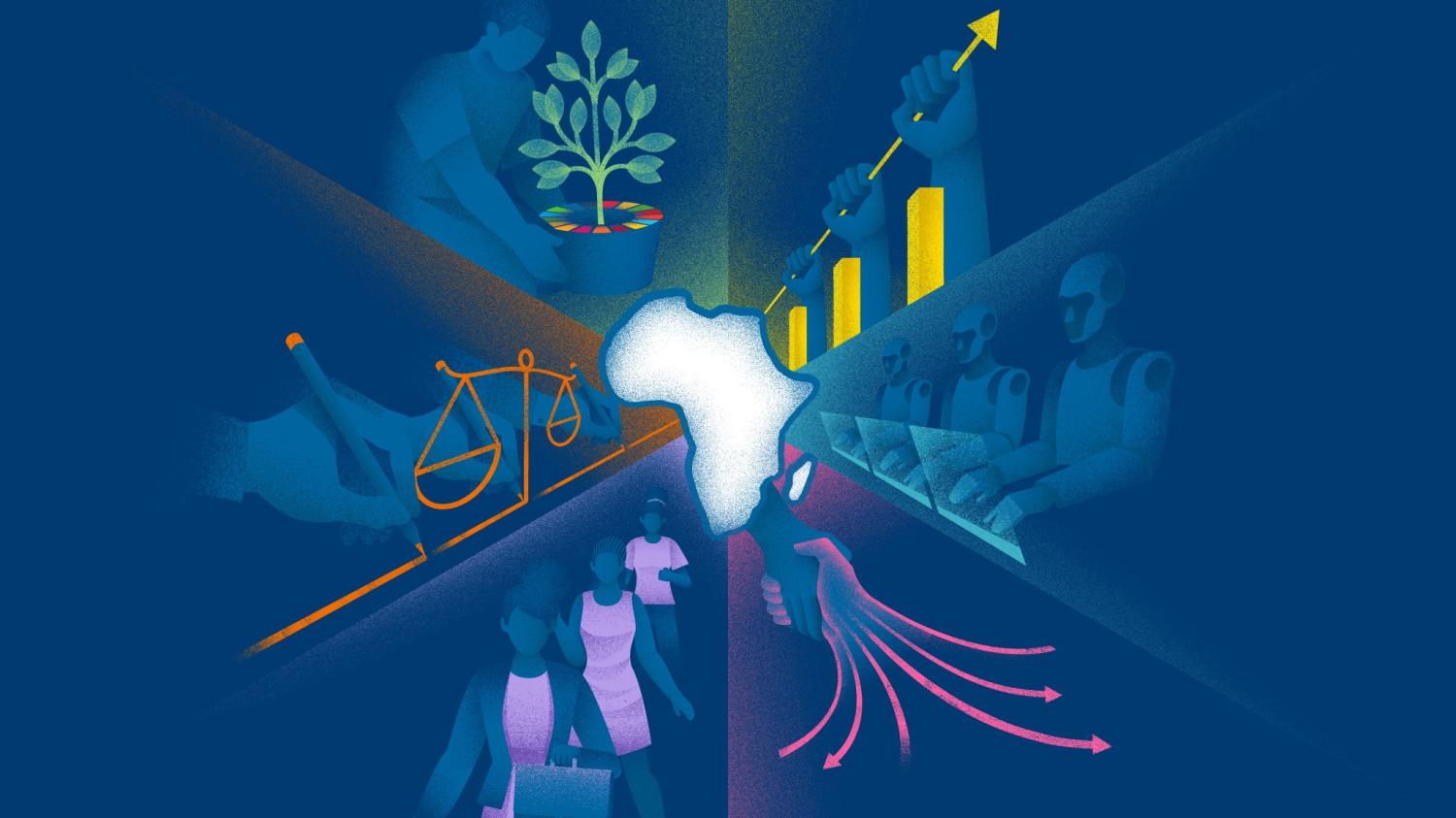


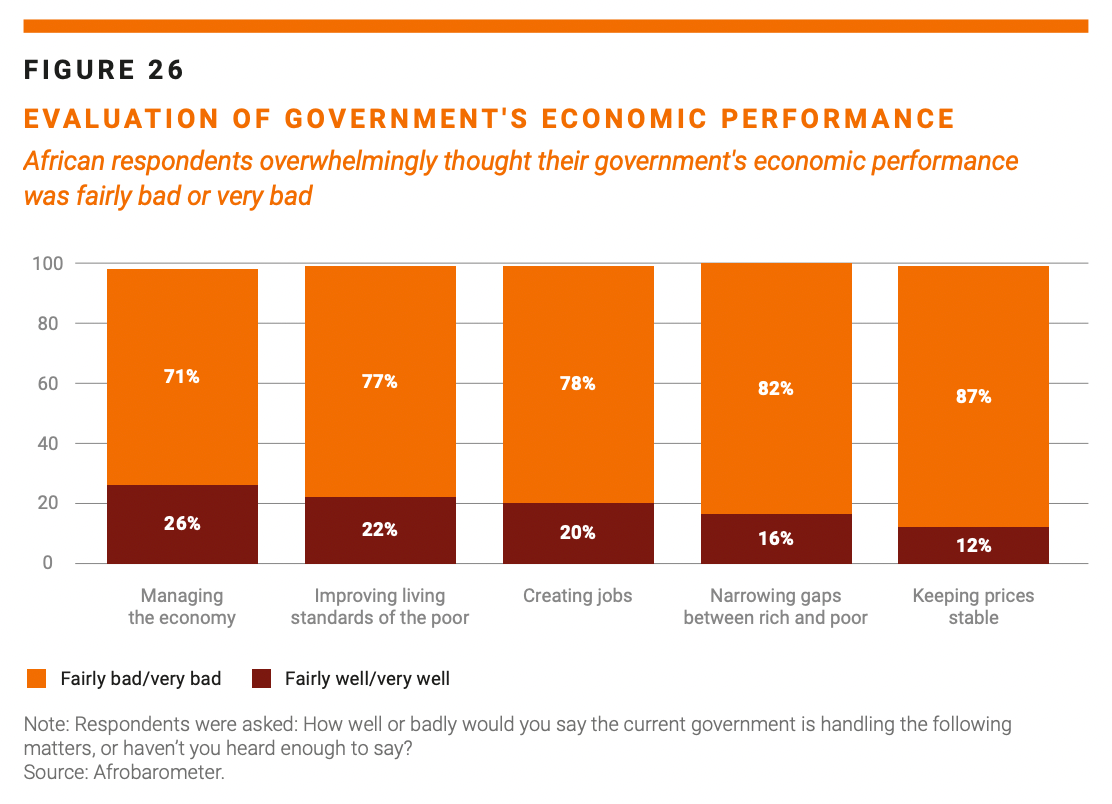





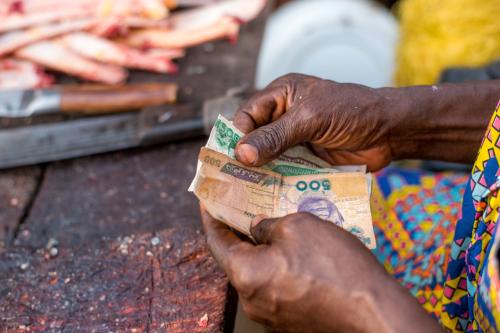

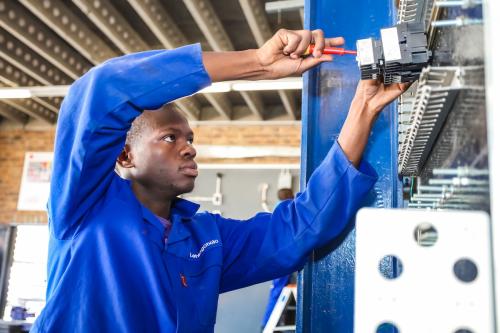
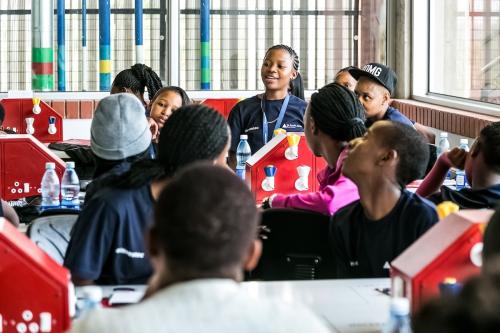


Commentary
People-centered development: Why the policy priorities and lived experiences of African citizens should matter for national development policy
May 13, 2025